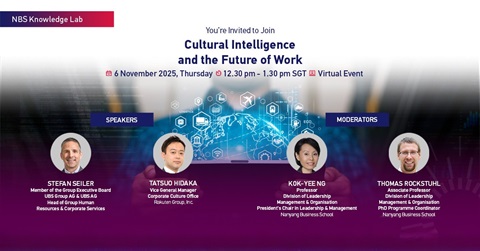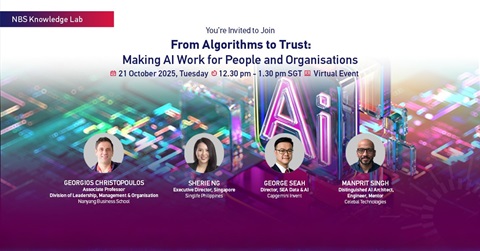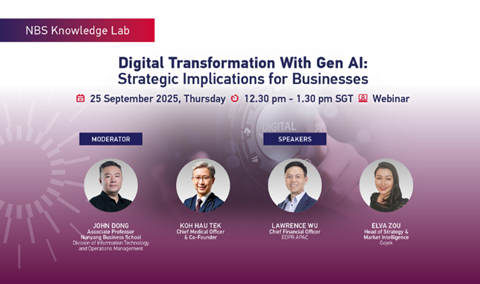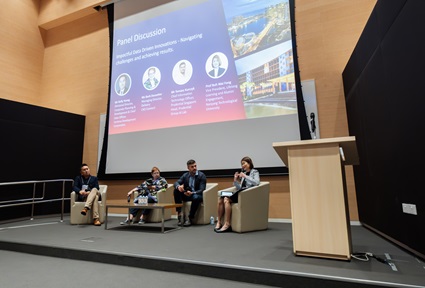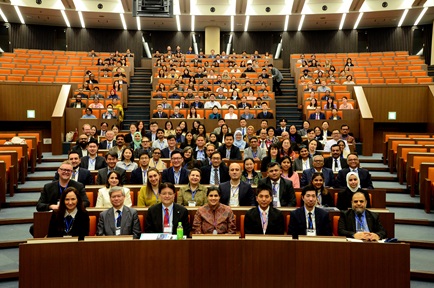Singaporeans have upskilled before, and can do so again
Instead of focusing on dramatic mid-career shifts, we should emphasise the smaller steps that are attainable by more people
My mother, just a few years away from retirement, expressed an interest in upskilling for her job as an office administrator. So her company sent her, on its coin, to attend a course on spreadsheet software Microsoft Excel.
She quit after the second session, when she found out she would have to study the nuts and bolts of it outside of work hours for weekly tests - on top of household chores and personal errands. Then there was the work that would pile up in her absence.
The idea of taking on such a commitment, after more than 40 years in the workforce, was something entirely alien to her, stretched by the tense and all-encompassing balancing act of being a mother, homemaker and employee.
Her story possibly mirrors that of many more workers in Singapore who may have a vague desire to improve their skills, or acquire new ones to remain relevant at work, but who find the actual practice of such skills upgrading daunting.
A YouGov study commissioned by software company HubSpot in February found that almost nine in 10 Singaporean workers thought upskilling and job-related learning should be done during work hours, as part of their role.
Almost 90 per cent of respondents reported facing barriers to upskilling, with lack of time and financial support cited as the top factors.
Another study, by continuous learning provider NTUC LearningHub and published in September, found that one in four employees polled was neither enrolled in nor attended any training in the past year - with more than half of them citing a lack of time.
While time and a lack of finances are surely obstacles to upskilling, I wonder if another deterrent is that the whole idea of reskilling has been painted as such a major effort that it has become too daunting.
Talk about being future-ready can seem remote to the average worker.
A better approach is to sell reskilling as something workers can do regularly, in small bites.
Break down that Everest of upskilling into smaller climbs, and more workers might feel less intimidated about taking the first step.
Last year, for example, a widely shared post featured a man who switched to nursing from the semiconductor sector through a structured career conversion programme.
While stories of such dramatic mid-career shifts make for inspirational reading, they can seem far from reality to many employees.
Highlighting such career shifts made at great upfront cost to career trajectory and family life may even create the perception that upskilling is an intense commitment for a select and highly dedicated few.
Instead, to make upskilling more relatable, stories of those who make more gradual career moves can be told.
One such poster boy might be Mr Stanley Teo, 50. Currently head of wellness and community partnerships at UOB, he has gone through the full spectrum of career conversion, with little fanfare, over nearly three decades.
A year into his first job, in human resources, the business graduate took a formal nine-month conversion course in 1998 at the National University of Singapore's Institute of Systems Science, which equipped him for a career in information technology. After a couple of years in a technical role in an IT consultancy, he moved on to IT policy with the Government, ending up engaging with foreign companies to promote Singapore as a digital hub.
He then moved from public service to banking with UOB, applying his skills in a new setting to stimulate foreign investment, before moving into community partnerships. "It is more of a state of mind," he said of upskilling.
Telling stories of upskilling as something many workers are doing, via courses that expand or deepen skillsets even modestly, can be more motivating and helpful than nagging workers about abstract concepts such as the future economy and economic competitiveness.
In any case, Singapore workers are used to the idea of having to adapt to change and remain competitive. In fact, this is in our DNA. Generations of workers have gone down the same path of reskilling, successfully. Look at reskilling, upskilling as an investment, not cost, says panellist at SkillsFuture forum Tech and upskilling crucial to transform facilities management and draw talent.
In a 2015 speech on the economic history of Singapore, Monetary Authority of Singapore managing director Ravi Menon said Singapore's industrialisation began in the 1960s with factories producing items such as matches, fish hooks and mosquito coils.
These labour-intensive sectors steadily declined in the 1970s, supplanted by manufacturing higher value-added electronics, petrochemicals, and component and precision engineering. Singapore became the world's leading producer of hard disk drives by the 1980s.
Such a move up the value chain would have been accompanied by large-scale upskilling within the workforce.
Today's workers in sunset industries will similarly have to reskill and seek opportunities in new sectors.
While reskilling is part of the Singapore story, I think there is a risk of insularity among some senior workers.
Those working for many years in tasks that historically evolved more slowly, or where niche mastery and institutional knowledge still rule the roost, may have become lulled into a false sense of complacency that their job is secure, at least until they retire.
Examples could be bank tellers and call centre operators. During a question-and-answer session at Nanyang Technological University that I attended in August, DBS Group chief executive Piyush Gupta recounted the bank's move to upskill such staff after realising in 2016 that 1,600 of these jobs could be made obsolete within four years.
Although the bank promised all 1,600 employees would be trained and redeployed to another role, about 400 quit the company.
Singapore's work culture tends to value seniority, as a 2018 study by recruitment agency Randstad hints at. Almost eight in 10 workers want to work with a manager who is older than them.
But long years at a job does not insulate a worker from changes that are sweeping workplaces. Such workers might do well to look back at Singapore's economic history, to see how workers have always had to adapt and pick up new skills to remain relevant.
But while stories about how others have successfully reskilled can be motivating, nothing beats the need for concrete workplace practices to encourage workers to pick up the abundant reskilling opportunities already in place.
Employers have to set in place policies that allow workers to take up such upskilling on company time, and support them while they are being trained, so they do not end up being overworked, stressed or otherwise penalised for taking up training.
Mum is now happily retired, so her inability to finish upskilling did no harm to her personally.
But a loss like that, writ large, would be costly to the workforce as a whole.
Telling more realistic stories about upskilling and encouraging companies to put in place more training-friendly policies are two moves that can hopefully nudge more workers to start climbing their personal upskilling Everest.Source: The Straits Times

.tmb-listing.png?Culture=en&sfvrsn=d48abb4_1)
